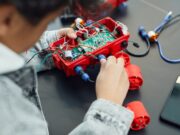In the history of humanity, education in preliterate societies focused on different from the modern schooling systems we are familiar with today. Preliterate societies relied on oral traditions to pass down knowledge, skills, and culture from one generation to the next.
What is Education in Preliterate Societies?
Education in preliterate societies refers to the informal methods of learning that occurred in the absence of written language. These methods were deeply rooted in oral culture education. Instead of textbooks or written records, knowledge was communicated through stories, songs, and rituals.
In these societies, education often took place within the community, passed down by elders or other respected members of the group. These teaching methods helped children and young adults learn vital skills, including hunting, farming, and social customs.
Understanding Early Learning Methods
One of the primary ways education occurred in these societies was through storytelling. Elders would pass on knowledge by recounting stories, often in the form of myths, legends, or personal experiences. These stories were not just entertainment; they served as a means of teaching younger generations about their history, values, and morality.
Other methods included direct teaching through apprenticeships, where a young person would learn a craft or skill directly from a more experienced individual.
The Role of Oral Traditions in Education
Oral traditions played a significant role in educational systems in preliterate societies. These traditions were the means through which societies passed on their cultural knowledge. Storytelling, songs, and chants were used to preserve and share important historical events, religious beliefs, and life lessons.
Oral education allowed societies to maintain a shared identity and cohesion despite the lack of written records. It was also more accessible, as it didn’t require literacy skills to partake in the educational process. Indigenous knowledge systems are a great example of how oral culture can effectively pass down generations of wisdom without the need for written documentation.
Knowledge Transmission in Preliterate Cultures
The Significance of Oral Culture Education
Oral culture education was not just about imparting practical skills; it was also about preserving identity. Through storytelling and other oral traditions, societies could instill values, teach societal norms, and ensure the continuity of their culture. Elders in these societies were often the primary educators, passing down wisdom to the younger generation.
In societies that relied on oral transmission, learning was an interactive process. The younger members of the community learned by observing, participating in daily tasks, and receiving guidance from their elders. Rituals and ceremonies were also integral to this learning process, as they marked significant transitions in a person’s life and taught them about their role in the community.
Preliterate societies had various ways of ensuring that knowledge was passed down to future generations.
The family unit was typically the first place where education began, with parents or extended family members passing down lessons about survival, family roles, and customs. As the individual grew older, the education expanded to include tribal leaders, spiritual guides, or other respected individuals in the community.
Table: Methods of Knowledge Transmission in Preliterate Societies
| Method | Description | Example |
| Storytelling | Oral recounting of myths, legends, and experiences | Native American creation myths |
| Apprenticeship | Hands-on learning under a mentor or master craftsman | Hunting, fishing, or weaving skills |
| Rituals & Ceremonies | Participation in cultural rituals to mark important life events | Initiation ceremonies in African tribes |
| Community-Based Learning | Education within the social context of the community | Farming techniques in agrarian societies |
Education Before Written Language: An Overview
The Impact of Informal Education in Preliterate Societies
The lack of formal schooling did not mean a lack of education. Informal education in preliterate societies was often more community-centered and holistic than formal education systems today. Children learned by doing, and the knowledge they gained was directly tied to the survival and well-being of their communities.
Education in these societies was not confined to the classroom; it was intertwined with everyday life. Whether it was helping to gather food, participate in social events, or learning through storytelling, children in preliterate societies were constantly absorbing information. This type of education prepared them not only for their practical roles in society but also for their cultural and spiritual responsibilities.
Preserving Knowledge in Non-Written Societies
Without written records, pre-literate societies had to find innovative ways to preserve and pass on knowledge. Oral traditions, such as songs, myths, and chants, ensured that even the most detailed knowledge about history, genealogy, and cosmology was not lost.
These traditions were dynamic and flexible, allowing for the reinterpretation of knowledge based on the changing needs of the society.
Indigenous Education Practices and Their Role in Cultural Transmission
The Importance of Indigenous Knowledge Systems
Indigenous knowledge systems are rich with valuable insights that have sustained communities for millennia. These systems encompass not only practical survival skills but also a deep understanding of the environment, social organization, and spirituality. Preliterate societies often had highly developed systems of education based on this knowledge.
Traditional ecological knowledge passed down through generations often informed agricultural practices, hunting strategies, and sustainable living methods. This type of education ensured the survival of communities by promoting balanced relationships with the earth.
How Traditional Learning Shaped Societies
Traditional learning was integral to the survival of preliterate cultures. It shaped societal structures, as knowledge about social roles, hierarchy, and community duties was taught from a young age. Preliterate societies relied heavily on oral education to cultivate a sense of belonging and to ensure that all members of the society understood their responsibilities.
Preliterate Learning Systems: A Cultural Perspective
Learning Through Stories, Songs, and Rituals
The learning process in preliterate societies was often enriched through creative means such as stories, songs, and rituals. These methods were effective because they engaged both the mind and emotions, ensuring that the lessons taught were memorable and meaningful.
For example, many Indigenous societies used songs to teach younger generations about natural cycles, spirituality, and history. Rituals, like initiation ceremonies or rites of passage, marked important transitions in a person’s life and were also an opportunity to impart critical knowledge.
The Role of Elders and Community in Education
In preliterate societies, elders were revered for their knowledge and wisdom. They were the primary educators, responsible for passing on cultural values and practical skills. These elders were not only teachers but also mentors who guided the younger generation through life’s challenges.
Conclusion: The Value of Early Forms of Education in Today’s World
While modern education has evolved significantly with the advent of written language and formal schooling systems, there is much we can still learn from preliterate societies. Their use of oral traditions, hands-on learning, and community-based education can offer valuable insights into creating more inclusive, holistic, and culturally sensitive educational models today.
Frequently Asked Questions
- What is the main method of education in preliterate societies?
In preliterate societies, education was primarily based on oral traditions such as storytelling, songs, and rituals. - How did children learn in preliterate cultures?
Children in preliterate societies learned by participating in daily life activities, through apprenticeships, and by listening to elders tell stories. - Why is oral tradition important in education?
Oral traditions are important because they preserved cultural knowledge, values, and histories.
By understanding and embracing the wisdom of preliterate societies, we can enrich modern educational systems with deeper, more culturally connected teaching practices.























